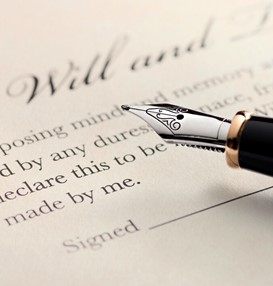Attorney TipsIssue No. 2 | January, 2022
ESTATE PLANNING
Part 1: Wills
A Will is an instrument in which you determine how your assets are distributed upon your death. You will identify one or more individuals to serve as the Personal Representative for your Estate who will be responsible for distributing your assets and carrying out your wishes.
Tip: 1) If you die without a Will, or “intestate”, the state will decide how your assets are distributed. Having a Will allows you to dictate the distribution according to your specific wishes instead of the Court using a predetermined formula for allocating your assets to your relatives.
2) You want to keep your Will in a safe place and tell your Personal Representative where to find it. It is better not to place it in a safety deposit box as they will not be able to access it without a special court order.
3) It is also important to note that if you have an investment account, retirement account, insurance policy, or any other account that has a named beneficiary, that named beneficiary has priority over that asset and your Estate will not govern the distribution. It’s a good idea to check who you have named as the beneficiary for these types of accounts at the same time that you execute your Will.

